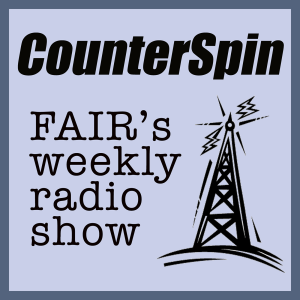
Other Words (1/31/24)
This week on CounterSpin: CNN host Dana Bash asked a question in the Republican presidential debate (1/10/24) in Des Moines, Iowa:
The rate of inflation is down. Prices, though, are still high, and Americans are struggling to afford food, cars and housing. What is the single most important policy that you would implement as president to make the essentials in Americans’ lives more [affordable]?
Unfortunately, she asked the question of South Carolina Gov. Nikki Haley, who answered with word salad involving “wasteful spending on a Covid stimulus bill that expanded welfare, that’s now left us with 80 million Americans on Medicaid, 42 million Americans on food stamps.” Haley concluded with the admonition “quit borrowing. Cut up the credit cards.”
“Cut up the credit cards” is interesting advice for people who are having trouble affording diapers, but it’s the sort of advice politicians and pundits dole out, and that corporate news media present as a respectable worldview, worthy of our attention.
There is another view, that acknowledges that the same people who earn wages also buy groceries, and pretending that we’re pitted against one another is not just mis- but disinformation.
Rakeen Mabud is chief economist and managing director of policy and research at Groundwork Collaborative. They have new work on what’s driving grocery prices, that doesn’t involve getting mad at people using food stamps. We’ll hear from her today on the show.
Plus Janine Jackson takes a quick look at analogies that encourage genocide.
The post Rakeen Mabud on Greedflation appeared first on FAIR.
More Episodes
 2024-02-02
2024-02-02
 2024-01-19
2024-01-19
 2024-01-05
2024-01-05
 2023-12-29
2023-12-29
 2023-12-22
2023-12-22
 2023-11-24
2023-11-24
 2023-11-17
2023-11-17
 2023-10-13
2023-10-13
 2023-10-06
2023-10-06
 2023-09-29
2023-09-29
 2023-09-22
2023-09-22
Create your
podcast in
minutes
- Full-featured podcast site
- Unlimited storage and bandwidth
- Comprehensive podcast stats
- Distribute to Apple Podcasts, Spotify, and more
- Make money with your podcast
It is Free
- Privacy Policy
- Cookie Policy
- Terms of Use
- Consent Preferences
- Copyright © 2015-2024 Podbean.com





